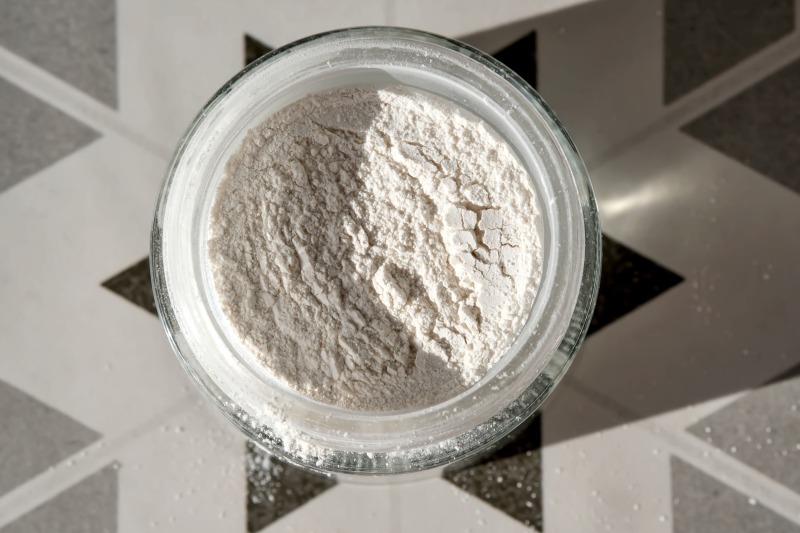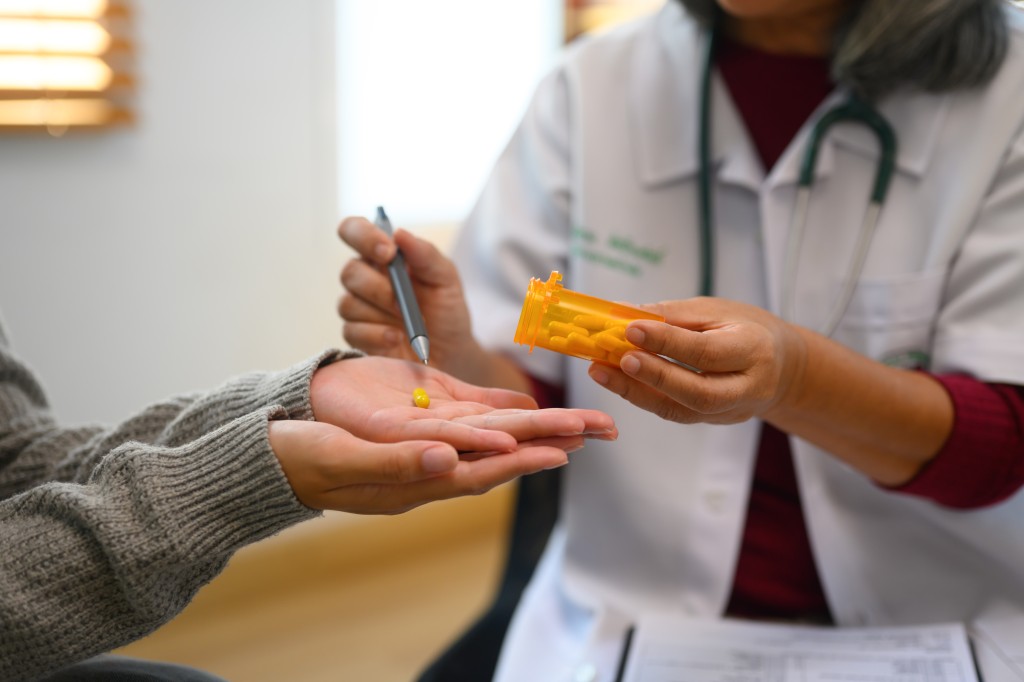Choosing to begin recovery from drug or alcohol addiction is a brave and transformative step.
At Compassion Behavioral Health, our detox programs are designed to provide personalized care and support, helping individuals take the first vital step toward lasting healing.
Discover the essentials of drug and alcohol detox in Florida, including the importance of detoxification, the types of programs available, what to expect during the process, and how to choose the right facility. Whether you or a loved one is struggling, understanding the detox process is the first step toward lasting recovery and renewed hope.
Detoxification serves as a critical first step in the recovery process, allowing individuals to safely rid their bodies of harmful substances while managing withdrawal symptoms under professional supervision. The importance of a medically monitored detox cannot be overstated, as it significantly reduces the risks associated with withdrawal, which can range from uncomfortable to life-threatening. In Florida, many facilities offer a holistic approach to detox, incorporating not just medical care but also emotional support and therapeutic interventions. This comprehensive care model helps individuals not only to detoxify physically but also to begin addressing the psychological aspects of their addiction, laying a solid foundation for ongoing treatment.
Understanding Drug and Alcohol Detoxification
What Is Detox and Why Is It Important?
Detoxification, commonly known as detox, is the medically supervised process of clearing the body of drugs or alcohol while managing withdrawal symptoms. It is the critical first phase of addiction treatment, designed to stabilize individuals physically and mentally before moving on to long-term therapy and rehabilitation.
When someone stops using substances abruptly, the body reacts with withdrawal symptoms that can range from mild discomfort to life-threatening complications. Detox programs provide a safe environment where these symptoms can be monitored and treated effectively. This initial step is crucial, as it lays the groundwork for a successful recovery journey. Without proper detoxification, individuals may find it exceedingly difficult to engage in subsequent therapeutic interventions, as the physical discomfort and psychological challenges can be overwhelming.
The Science Behind Detox
Substances like alcohol, opioids, benzodiazepines, and stimulants affect the brain’s chemistry and physical functions. Over time, the body becomes dependent on these substances to function normally. When use ceases, the brain and body must readjust, leading to withdrawal symptoms such as:
- Anxiety and irritability
- Nausea and vomiting
- Seizures or tremors
- Depression or mood swings
- Insomnia or fatigue
Detox programs use medications, counseling, and medical supervision to ease this transition, reducing the risk of relapse and health complications. In addition to medication-assisted treatment, many detox facilities, including CBH, incorporate holistic approaches, such as yoga and mindfulness practices, which can significantly enhance emotional well-being. These complementary therapies help individuals develop coping strategies and foster a sense of community, which is vital during such a vulnerable time. Furthermore, the support from healthcare professionals and peers can instill a sense of hope and motivation, encouraging individuals to commit to their recovery journey.
Understanding the physiological impacts of addiction is essential for those undergoing detox. For instance, the brain’s reward system, which is heavily influenced by substances, must recalibrate to function without the artificial stimulation provided by drugs or alcohol. This process can take time and may require ongoing support even after the detox phase is complete. Therefore, many detox programs emphasize the importance of aftercare and continued therapy to address underlying issues and prevent relapse, ensuring a more comprehensive approach to recovery.
Drug and Alcohol Addiction in Florida: The Current Landscape
Statistics and Trends
Florida faces significant challenges with substance abuse. According to the Florida Department of Health, approximately 10% of adults in the state report binge drinking, and opioid-related overdoses have surged in recent years. The state has seen an increase in emergency room visits related to drug overdoses, highlighting the urgent need for effective detox and treatment services.
Furthermore, Florida’s diverse population and large urban centers mean that addiction affects people from all walks of life. Access to quality detox services is crucial for addressing this widespread issue. The prevalence of addiction is not confined to any single demographic; it transcends age, race, and socioeconomic status. This multifaceted nature of addiction necessitates a comprehensive approach to treatment that considers the unique needs of various communities, ensuring that no one is left behind in the fight against substance abuse.
Why Florida Is a Unique Environment for Detox
Florida’s warm climate and extensive healthcare infrastructure make it a popular destination for treatment, attracting individuals nationwide. The state offers a variety of detox options, from luxury residential centers to community-based outpatient programs. Additionally, Florida’s laws and insurance policies influence the availability and affordability of detox services. The presence of numerous accredited facilities, often situated in serene settings, allows individuals to focus on recovery in a supportive environment, away from the triggers of their daily lives.
Types of Drug and Alcohol Detox Programs in Florida
Inpatient Detox Programs
Inpatient detox involves staying at a specialized facility 24/7 during the detox process. This option is ideal for individuals with severe addictions, co-occurring mental health disorders, or those who have experienced dangerous withdrawal symptoms in the past.
Benefits of inpatient detox include:
- Continuous medical supervision
- Access to medications to ease withdrawal
- Structured environment free from triggers
- Immediate support for emergencies
In addition to these benefits, inpatient detox programs often provide a range of therapeutic activities designed to promote healing and recovery. Patients may engage in individual therapy sessions, group therapy, and holistic treatments such as yoga or art therapy, which can help address the emotional and psychological aspects of addiction. The immersive environment also fosters a sense of community among patients, allowing them to share experiences and support one another through the challenging detox process.
Medication-Assisted Detox
Medication-Assisted Treatment (MAT) uses FDA-approved medications to reduce cravings and withdrawal symptoms. Common medications include methadone, buprenorphine, and naltrexone for opioid addiction, and benzodiazepines or anticonvulsants for alcohol withdrawal.
MAT is often combined with counseling and behavioral therapies to improve success rates and reduce relapse. The integration of medication with therapeutic support allows individuals to address both the physical and psychological components of addiction, leading to a more comprehensive approach to recovery. Additionally, ongoing monitoring and adjustments to medication dosages can help tailor the treatment to each individual’s needs, ensuring that they receive the best possible care throughout their detox journey.
What to Expect During the Detox Process
Initial Assessment and Medical Evaluation
The detox journey begins with a thorough assessment by medical professionals to determine the severity of addiction, physical health status, and any co-occurring mental health conditions. This evaluation guides the development of a personalized detox plan. During this initial phase, healthcare providers may also conduct a series of laboratory tests to assess liver function, kidney health, and other vital indicators that could impact the detox process. Understanding the individual’s medical history, including any previous attempts at detoxification, allows for a more tailored approach that can significantly enhance the chances of success.

Managing Withdrawal Symptoms
Withdrawal can be unpredictable, and symptoms vary by substance and individual. Medical staff monitor vital signs and administer medications as needed to alleviate symptoms such as:
- Muscle aches and cramps
- Rapid heartbeat and sweating
- Delirium tremens (in severe alcohol withdrawal)
- Psychological symptoms like anxiety or hallucinations
Supportive therapies such as hydration, nutrition, and counseling help maintain comfort and safety. In addition to medication, some facilities may offer alternative therapies like acupuncture or aromatherapy, which can provide additional relief from discomfort and promote relaxation. The environment is often designed to be calming and supportive, with comfortable accommodations that encourage rest and recovery. This holistic approach not only addresses the physical symptoms but also fosters a sense of well-being during a challenging time.
Emotional and Psychological Support
Detox is not only a physical process but also an emotional challenge. Many facilities provide counseling, peer support groups, and holistic therapies such as meditation or yoga to address anxiety, depression, and cravings. This support builds resilience and prepares individuals for continued treatment. The presence of trained therapists and support staff creates a safe space where individuals can express their feelings and fears without judgment. Engaging in group therapy sessions allows participants to share their experiences and learn from one another, fostering a sense of community that can be incredibly beneficial during recovery. Additionally, some programs incorporate art and music therapy, which can serve as powerful outlets for self-expression and healing, helping individuals to process their emotions in a constructive way.
Choosing the Right Detox Facility in Florida
Key Factors to Consider
Selecting the right detox center is crucial for a successful recovery. Important considerations include:
- Accreditation and Licensing: Ensure the facility meets state and national standards for safety and quality.
- Medical Expertise: Look for programs staffed by qualified doctors, nurses, and addiction specialists.
- Program Types: Choose a facility offering inpatient or medication-assisted detox depending on your needs.
- Aftercare Planning: Effective detox programs provide a clear transition plan to ongoing therapy or rehabilitation.
- Insurance and Cost: Verify what services are covered and explore financial assistance options.
Questions to Ask Potential Facilities
When researching detox centers, consider asking:
- What is the staff-to-patient ratio?
- How are withdrawal symptoms managed?
- What types of therapies and support are offered?
- Is there a focus on treating co-occurring mental health disorders?
- What is the average length of stay?
- How is aftercare coordinated?
The Road Beyond Detox: Continuing Recovery
Importance of Comprehensive Treatment
Detox is just the beginning of recovery. Long-term success depends on addressing the psychological and behavioral aspects of addiction through counseling, therapy, and support groups. Many individuals benefit from inpatient rehabilitation, outpatient programs, or community support such as 12-step groups.
Building a Support Network
Recovery thrives on connection. Family involvement, peer support, and ongoing counseling help maintain motivation and accountability. Florida offers numerous resources, including sober living homes and community organizations dedicated to supporting those in recovery.
Preventing Relapse
Relapse is common but not inevitable. Strategies to reduce relapse risk include:
- Developing coping skills for stress and triggers
- Maintaining regular therapy sessions
- Engaging in healthy lifestyle activities
- Building strong social connections
- Utilizing medication-assisted treatment if prescribed
Medical Detox Programs at CBH in Florida
Drug and alcohol detox in Florida offers a vital first step toward reclaiming health and hope. With a variety of programs tailored to individual needs, medical supervision, and comprehensive support, individuals can safely navigate withdrawal and prepare for lasting recovery. Choosing the right detox facility and committing to ongoing treatment are essential components of success. If you or a loved one is struggling with addiction, remember that help is available, and recovery is possible.
If you’re ready to take the courageous step towards recovery and reclaim your health and hope, Compassion Behavioral Health is here to guide you on your path. Our Hollywood rehab center offers a customized approach to mental health and substance use treatment, ensuring a sustainable and long-term recovery tailored to your unique needs. With our expert team and strategic location near beautiful South Florida beaches, we provide the care and support necessary to reach your highest potential in physical and mental health. Call Us Today and start your journey to take back your life with Compassion Behavioral Health.


















































